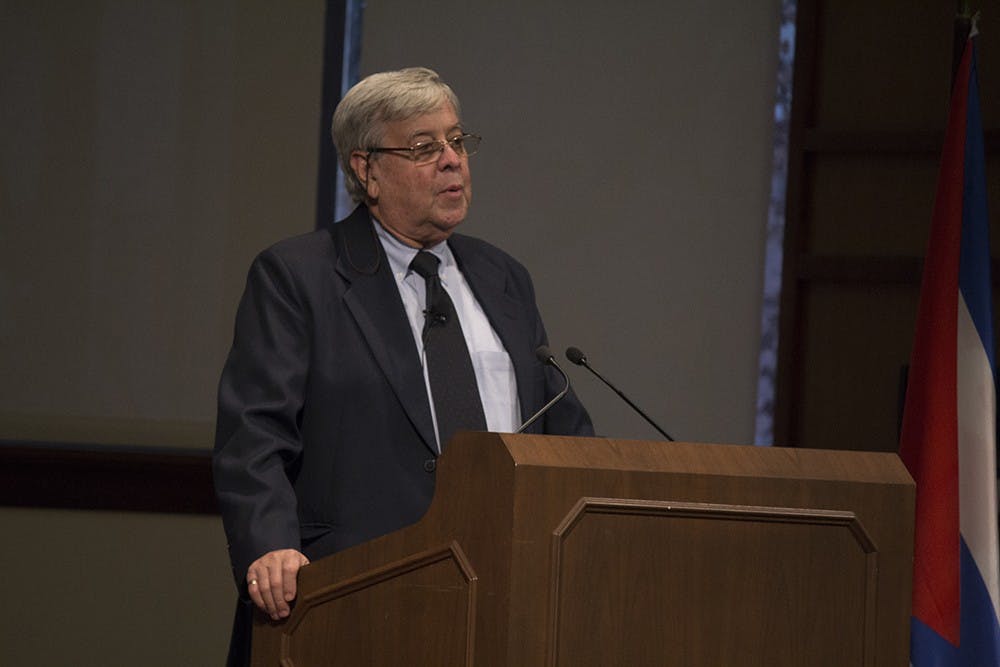“This was important because there was no precedent for something like this happening, the president of Cuba and the president of the United States shaking hands at a public function,” Alzugaray said. “As a matter of fact, there have been occasions when the two presidents have been together and it was the task of the diplomats at the time to stop them from being in the same frame together.”
Alzugaray’s career included work as an ambassador and foreign service officer from 1961 to 1996. He spoke Wednesday afternoon at Franklin Hall in his second official visit to IU about contemporary developments in Cuban-U.S. relations. The talk was sponsored by the School of Public and Environmental Affairs. Alzugaray’s two-day visit to the University represents a multi-school initiative.
The U.S. and Cuba restored official diplomatic relations in July for the first time since the relationship was severed in 1961. IU was one of 12 U.S. universities chosen by the Institute of International Education to participate in the Cuba Higher Education Initiative, which is meant to promote interaction between universities.
Rajendra Abhyankar, professor of diplomacy and public affairs at SPEA, introduced Alzugaray Treto. He said the talk is just the beginning of continued engagement between IU students and Cuba. One opportunity for engagement will come in 2017 in the form of a SPEA-sponsored study abroad program in Cuba.
“It’s not just that (Alzugaray) is coming to speak, but his talk is going to be followed up by a whole plan of action to see how IU students can benefit from going to Cuba, learning about Cuba and taking an interest in a most fascinating and interesting country, which has remained closed to Americans for so long,” Abhyankar said.
Alzugaray said it was significant the normalization began a series of negotiations, as opposed to extended negotiations.
On a political level, Alzugaray said the U.S. trade embargo against Cuba will eventually have to be lifted for relations to become fully normalized as promised.
“The embargo is like a dam closing the waters from going through their natural riverbed,” Alzugaray said. “Well, if you open a hole in the embargo here, a hole in the embargo there, the water that is pouring into it continues. And eventually the embargo will have to end.”
Official promotion of tourism could spur this sort of change in trade policy, Alzugaray said.
“If a company like Marriott could start building hotels in Cuba because there are Americans interested in visiting Cuba, we would see that banks and airline companies would start to align,” Alzugaray said. “And they would of course pressure Congress into lifting the embargo, which is what makes sense.”
Looking to the future, Alzugaray said both countries share common interests which can bond the nations.
“Inevitably, neighborliness generates common interests and common threats that we have to deal with,” Alzugaray said. “For example, if a hurricane hits Cuba, it will probably also hit the United States. When drug traffickers try to get drugs into the United States through Cuba, they are threatening both countries.”






